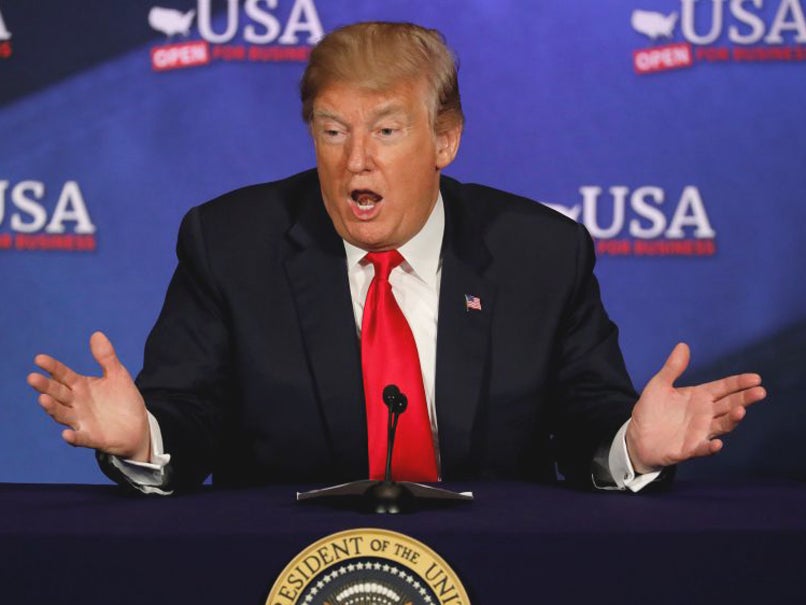Iran nuclear deal: Trump's European allies nervously await his decision on whether US will pull out
France's defence minister voices fears that US withdrawal could aggravate regional tensions

Donald Trump‘s European allies are on tenterhooks awaiting his decision on whether he will pull out of the Iran nuclear deal, having spent weeks lobbying him to stay in.
The US president tweeted that he would announce the decision at 2pm Washington time on Tuesday.
He has long threatened to withdraw from the agreement, signed during Barack Obama’s presidency, and has called it the “worst deal ever negotiated” because it does not address Iran’s ballistic missile programme or its role in the wars in Syria and Yemen, nor permanently block Tehran from developing atomic weapons.
European leaders have warned that a US withdrawal would undo years of work that led to and sustained a landmark deal that has kept nuclear weapons out of Iran’s hands.
On Tuesday morning France’s defence minister said weakening the agreement would aggravate tensions in the Middle East. Florence Parly added in an interview with RTL that it had successfully halted Iran’s military nuclear programme, calling the agreement “a factor of peace and stabilisation in a very eruptive region”.
Keeping the US in the deal was a key aim of Emmanuel Macron‘s state visit to Washington last month, proposing a “new” accord that maintained the signatories’ “common objective, we want to make sure there’s no escalation and no nuclear proliferation in the region”.
Boris Johnson also visited Washington on Monday, conducting talks with vice president Mike Pence and the new secretary of state Mike Pompeo.
A senior US official close to the decision-making process said France, Germany and the UK had shifted significantly to address Mr Trump’s concerns about ballistic missiles, the terms governing international inspectors’ visits to Iranian sites, and “sunset” clauses under which some terms of the deal expire.
In the past few weeks, Mr Trump has consulted either in person or by telephone with leaders of all three countries.
The EU has said the deal “is working and it needs to be preserved”, but European diplomats privately said they expected Trump to withdraw from the agreement despite the frantic lobbying.
And Iran has said it will not renegotiate, threatening to retaliate if Mr Trump pulls the US out and re-imposes sanctions, but has not said how.
Diplomats and military experts said Tehran could seek to resume its nuclear arms programme or step up its military involvement in Iraq, Syria, Yemen and Lebanon.
However, Iranian president Hassan Rouhani suggested on Monday that Iran might remain in the nuclear deal even if Trump abandons it and imposes sanctions.
But he also warned that Tehran would resist US efforts to limit its influence in the Middle East.
The European countries will try to keep the deal alive even if Mr Trump pulls out, they have indicated, to attempt to protect and foster trade with Iran that has soared since the EU lifted most of its economic sanctions on Iran.
Iran’s exports – mainly fuel and other energy products – to the EU in 2016 jumped 344 per cent to €5.5bn (£4.8bn) compared to the previous year, while investment in Iran jumped to more than €20bn.
Additional reporting by agencies
Join our commenting forum
Join thought-provoking conversations, follow other Independent readers and see their replies
Comments